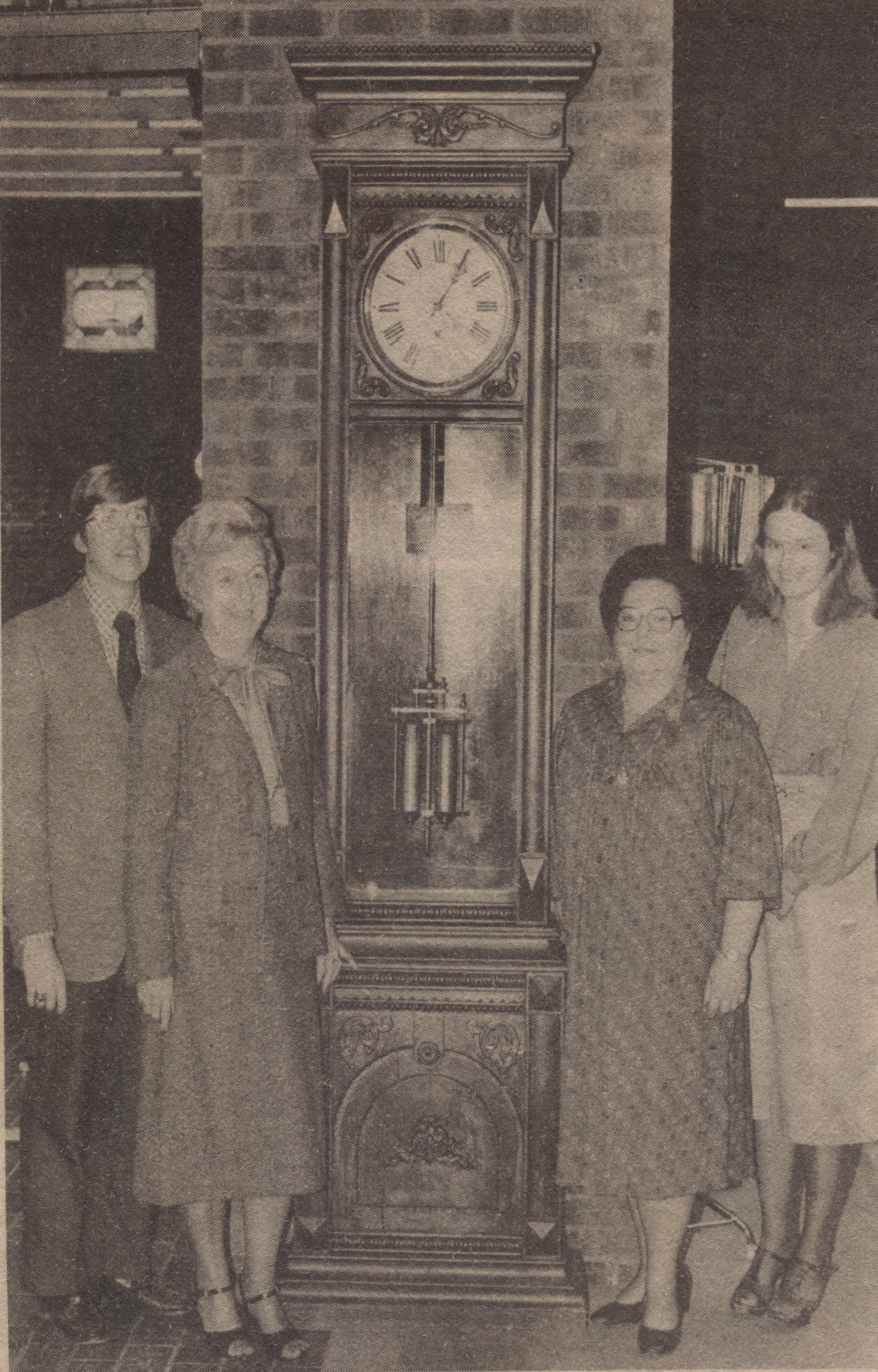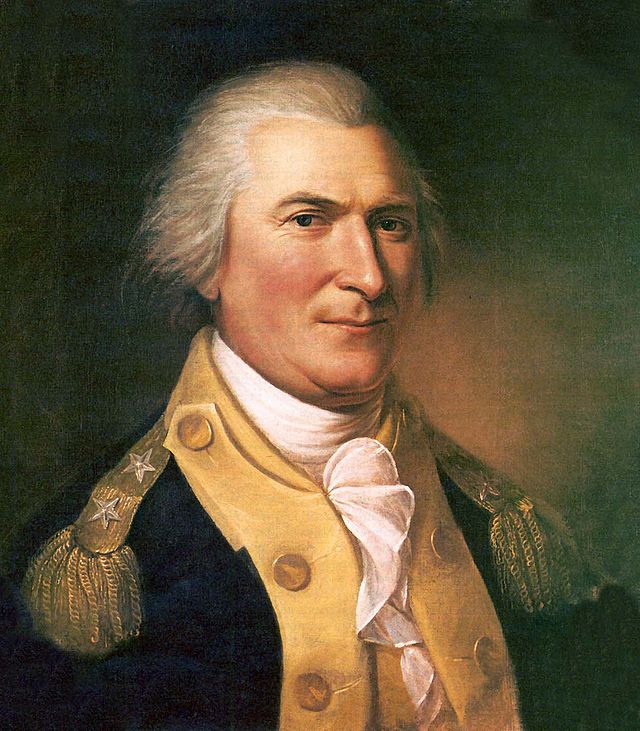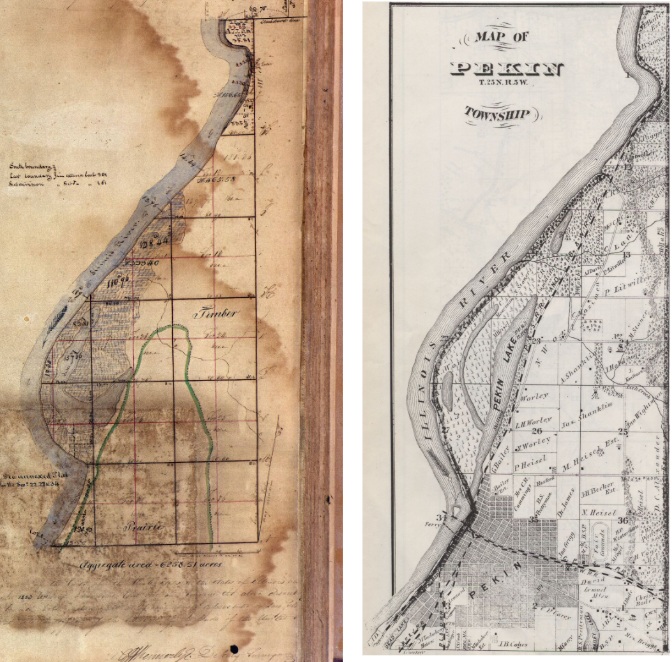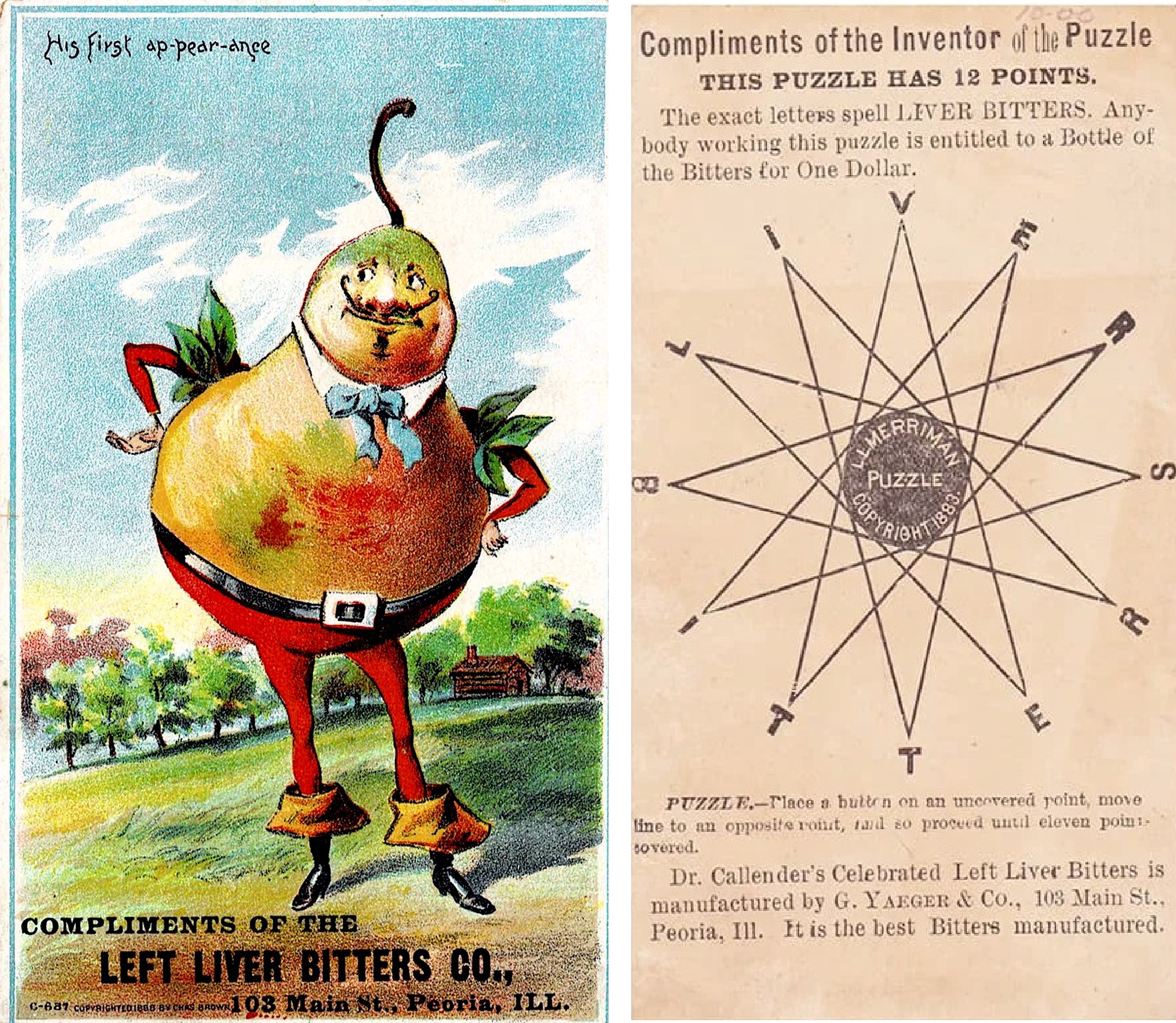With the completion and dedication of the new Pekin Public Library and Dirksen Congressional Center accomplished in 1974 and 1975, the new facilities rapidly were able to assume and continue the role of an engine of Pekin community life that the Pekin Carnegie library previously had.
One of the ways the library did that was by hosting art exhibits – something for which there was no space in the Carnegie library. The first art exhibit in the new library building was a group of more than 60 prints by Peoria photographer Lynn Swigart, which ran from Dec. 8, 1975, to Jan. 17, 1976.
Swigart’s photography exhibit was followed on March 1, 1976, by an exhibit of large color prints by Bloomington photographer Don Freese, whose photographs filled the walls of the library’s auditorium until April 9 of that year.
In 1976 communities across the United States joined in the celebration of the nation’s bicentennial. The Pekin Public Library helped Pekinites celebrate the bicentennial throughout 1976 with a number of programs, starting with a series of historical, biographical, and geographical films shown each Tuesday evening in the auditorium.
Also during the nation’s bicentennial year, the library began to host community events in its sunken plaza, which was dubbed “Marigold Plaza” in honor of the late Sen. Everett M. Dirksen. Among the events in the plaza that year was the premier performance of “Pekin Broadway ’76” on July 15, and a one-man dramatic presentation during the month of August by Kirk Hard, entitled, “Your Obedient Servant, A. Lincoln.”
A large of bronze bust of Senator Dirksen, crafted by sculptor Carl Tolpo, was brought to Pekin in late July of 1976. Commissioned by the State of Illinois for the Dirksen Center in Pekin, the bust was temporarily displayed in the main lobby of First National Bank & Trust Co.’s new building at 111 N. Sixth St. Subsequently a base was prepared for the bust in Marigold Plaza, and the Dirksen bust was placed there.
Apart from the art displays that the library began to host in 1975 and 1976, the library lobby was also adorned permanently with a set of five framed stained glass windows that had been saved by the Friends of the Library from the old Carnegie library before its demolition. The Friends donated them back to the library on Dec. 9, 1976, as a Christmas gift to the Pekin community.
Among the other notable events that took place during the early years of the new library building’s existence, on Aug. 1, 1978, Paula Weiss, who had been head of Children’s Services since Feb. 1971, became head of Adult Services. Mrs. Janice Giles was appointed as Weiss’ successor as head of Children’s Services.
It was in the following year, on Oct. 15, that, as we have mentioned in a previous column, the Pekin Carnegie library’s “Grandmother Clock,” that had been purchased by the Pekin Civic Chorus in 1904, was donated back to the Pekin Public Library. The clock had been intended for a proposed Tazewell Historical Museum, but instead was stored in a number of homes before being returned to the library by the Pekin Civic Chorus and Pekin Woman’s Club, whereupon it was placed in the Adult Services Department.

Then on Nov. 8, 1979, Library Director Dr. William McCully announced that the estate of the late David George Reuter had donated a Baldwin grand piano to the library, in memory of Reuter’s aunt Agnes Velde Herget. (The library’s piano is now in the second-floor Community Room.)
That same year, the library began a four-part program to computerize its operation and services, starting with the transfer of the library’s financial records to the city of Pekin’s computers. Then in 1980, the library acquired a computer to enable use of the Columbus, Ohio-based Online Computer Library Center (OCLC) for interlibrary loans.
In the summer of 1982, the library began the computerization of the check-out process with the acquisition of two computer terminals for the circulation desk, to enable the library to link with the collections of 17 other libraries in Central and Western Illinois. Those two terminals became operational in 1983.
While the library brought its processes into the Computer Age, the library also got new leadership. On Oct. 8, 1982, Dr. McCully finished seven and half years as library director, having tendered his resignation so he could accept the directorship of the Illinois Public Library in Park Ridge. Succeeding him was Paula Weiss, director of Adult Services, who would serve as director of the library for the rest of the millennium, and then some.
The subject of next week’s “From the History Room” column will underscore that the library has had its moments when its normally smooth and calm operations could be suddenly interrupted by disaster and controversy.









